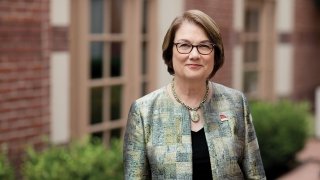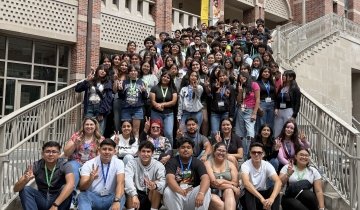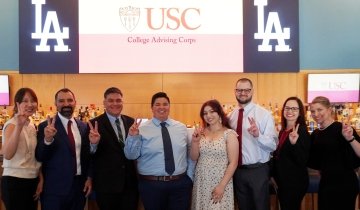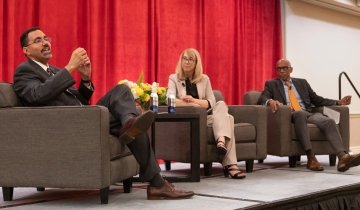Dear Friends of Rossier,
The seven faculty members who grace our cover together direct five research centers that are pursuing more equitable outcomes for college students.
This common mission isn’t lost on our own graduate students at USC Rossier. Of the nearly 700 students who have enrolled this year in one of our 11 graduate programs, nearly 50 percent are first-generation college goers.
And no one ethnicity or race accounts for more than 30 percent of our incoming student population. They are 29 percent white, 25 percent Hispanic/Latino, 25 percent Asian and 12 percent African-American.
While we are proud of the diversity of our incoming students, we know that diversity does not equal equity, as our center directors explain in this issue. From the Center of Urban Education’s Equity Scorecard to the USC Race and Equity Center’s National Assessment of Collegiate Campus Climates (NACCC), our centers are taking distinct paths to achieve their goals.
As we help other institutions become more equity-minded, we also are looking within to ask ourselves how well we, as an institution, are living up to our own commitment to equity. We are aware, for example, that the diversity of our student body is not matched by the composition of our faculty: Nearly three out of five Rossier faculty members are white. That is something we are working to address.
In the past year, we also have conducted a rigorous review of our curricula, assessed our racial climate, created a Diversity Task Force, appointed a new Associate Dean for Equity and Inclusion and are nearing completion of a schoolwide revision of our mission statement, which will place equity front and center.
These processes are not easy, but they are necessary. The stakes seem higher than ever before for schools of education and for colleges and universities, where students are navigating the meaning and impact of DACA policy changes, travel bans and free speech battles from Berkeley to Charlottesville.
In the face of these challenges, we know that educational leaders can either impede or support student learning. The best of us should always be exploring our own values and biases in order to understand what we bring to the classroom, to student services, to faculty hiring.
Ensuring more equitable outcomes is not simply a goal for our 700 new students. It is a requirement for all of us at USC Rossier and within the field of education.
Fight On!




